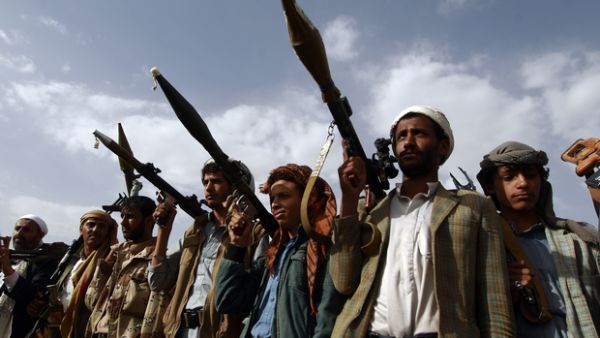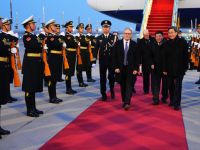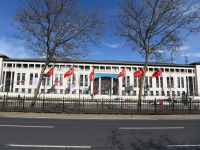Forces aligned to Yemen's Saudi-backed government on Saturday accused Houthi rebels of violating a temporary truce hours after it went into effect in the war-ravaged country.
Pro-government troops in northern Yemen accused the rebels of 17 breaches of the ceasefire, while an anti-Houthi commander in central Yemen said that the rebels and their allies shelled residential areas in the flashpoint city of Taiz.
There was no immediate response from the rebel side, as the ceasefire appeared to be mostly holding in the conflict zones.
Yemen, already one of the poorest countries in the Arab world, has been devastated by over two years of fighting that has cost the lives of thousands of civilians and left millions lacking food, clean water or medical facilities.
The 48-hour ceasefire took effect at noon (0900 GMT) after the government of President Abd Rabu Mansour Hadi apparently dropped its initial objections to the move.
US Secretary of State John Kerry had on Tuesday annnounced that the Houthis as well as Hadi's backers in Saudi Arabia and the United Arab Emirates had agreed on a ceasefire to facilitate progress on a UN-backed peace plan.
However, Hadi's foreign minister, Abdul-Malik al-Mekhlafi, then denounced Kerry's comments and said the government was not aware of the ceasefire, which had initially been slated to start on Thursday.
A Saudi-led coalition which has given Hadi key military backing said Saturday that it was calling off operations on the basis of a message from the Yemeni president backing the truce "in response to United Nations and [other] international efforts to establish peace."
The coalition added that the truce could be extended if the mainly Shiite Houthis observed it and allowed delivery of humanitarian aid to areas under their control.
Yemen analyst Adam Baron said that the ceasefire was the result of "an absolute flurry of diplomatic activity" by Kerry as well as considerable efforts by neighbouring Oman, which has acted as a mediator with the Houthis.
It would be in the Houthis' interests to accept a deal given their stronger strategic position, Baron, a fellow of the European Council on Foreign Relations and researcher with the Vienna-based Institute for Social Anthropology, said.
The rebels hold the capital Sana'a and most of densely-populated northern Yemen, in alliance with former president Ali Abdullah Saleh whose loyalists control the most effective units in the divided army.
A disparate alliance of anti-Houthi forces aligned with Hadi has made little progress on the ground since it expelled the rebels from the key southern city of Aden in mid-2015.
Baron commented: "Any agreement will mean that the internationally recognized government will have to sacrifice some of its power ... people are going to lose their positions ... and I think that's one of the reasons you're seeing Hadi digging in."
The parties to the conflict are themselves deeply fractured, he added, making it easy for hardline factions to act as spoilers to any movement towards peace.
The ceasefire is the latest in a series of peace efforts, most of which have failed to hold.
The conflict started when the Houthis pushed out of their northern Yemeni stronghold towards the capital Sana'a in early 2014.
In March 2015 they moved on Aden, Hadi's last stronghold, forcing the president to flee and sparking the Saudi-led air campaign.
UN special envoy on Yemen Ismail Ould Cheikh Ahmed welcomed the announcement of the cessation of hostilities, noting that it was "necessary to avoid further bloodshed and destruction" and called on all parties to "encourage full respect" for the halt in fighting.
Sharaf Loqman, a spokesman for pro-rebel troops, said that his forces' observance of the ceasefire hinges on the other side's compliance.
"The army, security forces and Popular Committees [a Houthi militia] are ready to defend people's dignity, sovereignty and independence if the aggressors insist on continuing their aggression," Loqman told Yemen's rebel-controlled news agency, Saba.
At least 4,125 civilians have been killed in Yemen since the Saudi-led coalition started its air campaign, according to UN figures as of early October.
Millions more are suffering serious food and water shortages. A cholera outbreak has also been confirmed in the rebel-held capital Sana'a.
Mostly Sunni Saudi Arabia fears that Yemen's rebels will give its regional rival, Shiite Iran, a strategic foothold on the Arabian Peninsula.
By Amal Al-Yarisi, Ramadan Al-Fatash and Pol O Gradaigh








